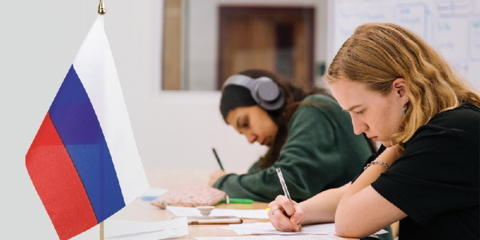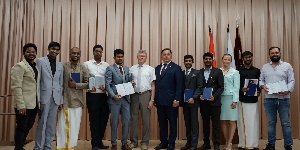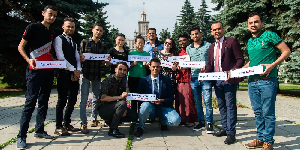There has been a growing concern about study management for international students in the current epidemiological situation.
The coronavirus pandemic hasn’t had any impact on the inflow of international students to top Russian universities in 2020, as stated on the website of the Association of Global Universities*.
On average, enrollment numbers are the same as last year. The international student dismissal rate also remains unchanged. In the first semester, the association’s universities dismissed 4.8% for various reasons (4.6% were dismissed in the first semester of 2019). The Russian student dismissal rate is much the same.
The pandemic has seriously altered the course delivery mode. Those who didn’t go home on vacation due to border closures continue their studies in the same mode as Russian citizens.
Universities have developed special measures and provide training according to individual curricula for first-year students and those who didn’t manage to come back to Russia after their vacation. Classes for such international students are organized in several ways: via online channels taking into account the different time zones and Internet speed—a differentiated schedule is made up. Students can attend classes online and have access to recorded classes. In some cases, universities provide training at a partner university in the applicant’s home country (e.g. for Chinese students). Also, they use only one method of communication with Chinese students—the WeChat messenger which is not blocked in China. Unfortunately, other messengers and/or online platforms are blocked by Chinese authorities, and that’s a real problem.
Some classes are conducted using offline and online modes at the same time.
In such cases, special video equipment is used in classrooms. This enabled universities to use a blended mode in the same classroom during the first months of study. When most universities went partially remote, all study channels worked in remote mode for all students.
Students living in the dormitories are provided with rooms for self-study. They attend practical classes in small groups and consultations on the schedule taking into account the limitations.
To support international students who live on campus or study remotely, universities use systems for online communication via various channels (personal accounts on the university’s educational platform, messengers, social media platforms, etc.). Besides, volunteers from among university students are assigned to international students to help them solve their everyday and academic problems. They also help mature-age teachers set up their computer equipment, teach them how to work on social media platforms.







